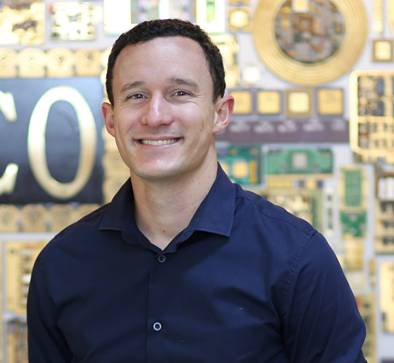A new pan-African coalition has officially launched to address the mounting challenge of end-of-life diagnostic and medical equipment piling up across laboratories and healthcare facilities on the continent.
The African Diagnostics and Medical Instrument Recycling (ADMIRe) Coalition brings together global leaders, healthcare stakeholders, and sustainability experts with a shared mission: to build a circular future for Africa’s diagnostic healthcare sector.
Across the continent, thousands of medical laboratories are grappling with a largely overlooked problem – the growing number of “equipment graveyards”. These are stockpiles of obsolete, broken, or expired diagnostic and medical instruments abandoned in back rooms, basements, and warehouses. In many cases, this equipment ends up in landfills – posing serious environmental and health risks.
“Procurement and waste management systems are not integrated,” explains Giulio Airaga, Managing Director of Desco Electronic Recyclers, one of Africa’s leading e-waste service providers. “Public hospitals often receive new devices without any strategy for removing old ones. That means outdated or contaminated equipment is left to gather dust – or worse, it’s dumped unsafely.”
The World Health Organization (WHO) has flagged the improper disposal of medical waste as a high-risk issue, warning of potential exposure to blood-borne pathogens, harmful emissions, and illegal resale of instruments.
The ADMIRe Coalition was conceived during ongoing discussions between Roche Diagnostics and The Global Fund, later joined by Becton, Dickinson and Company (BD) and supported by the African Circular Economy Network (ACEN). Together, these partners aim to close a critical gap in Africa’s medical infrastructure by creating scalable, sustainable pathways for recycling complex diagnostic and medical instruments.
ADMIRe’s initial focus is on diagnostic instruments, which are in increasingly high demand due to global health goals to eliminate HIV, tuberculosis, and malaria by 2030. As laboratories expand to meet these needs, the volume of equipment reaching its end-of-life will only grow – making it more urgent than ever to ensure proper disposal, recovery, and reuse of valuable components.
ADMIRe’s goal is to empower African countries with the tools, skills, and infrastructure needed to manage medical e-waste responsibly. This isn’t just about waste – it’s about jobs, economic growth, public health, and innovation.
By 2030, ADMIRe aims for all major diagnostic and medical instrument manufacturers to utilise specialised e-waste recycling facilities and regional hubs in at least 10 African countries. This ambitious roadmap seeks to achieve a 50% improvement in recycling rates compared to 2024, targeting the 80% of laboratory equipment currently in need of responsible disposal.
ADMIRe’s multifaceted strategy includes developing certified decontamination and recycling processes to ensure the safe and effective handling of medical and diagnostic equipment. It focuses on building regional capacity and infrastructure to support the safe transport and disposal of these instruments across borders.
The coalition is also committed to creating skilled green jobs and driving economic opportunities through workforce development. In partnership with regulators, ADMIRe works to establish robust policy frameworks that support responsible recycling practices. Additionally, the coalition promotes innovation in product lifecycle and sustainable design, encouraging manufacturers to adopt circular practices from the outset.

ADMIRe invites governments, manufacturers, healthcare providers, and civil society to join its mission of transforming Africa’s approach to diagnostic and medical equipment waste.
“This is about creating long-term change,” says Airaga. “Africa deserves resilient healthcare systems that don’t just treat patients but also protect people and the planet. Together, we can build a cleaner, safer, and more circular future for Africa.”




























